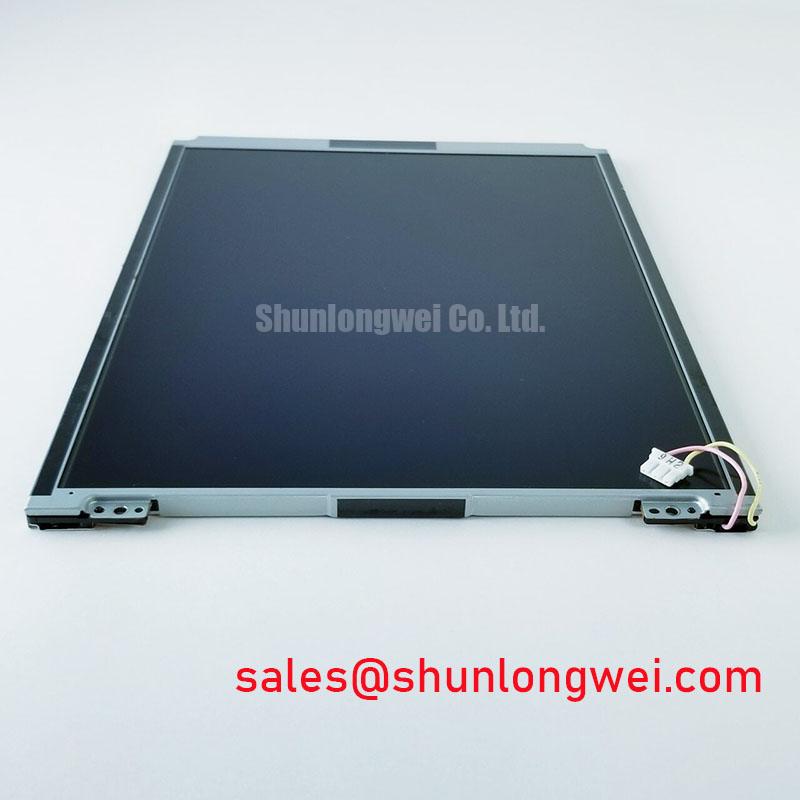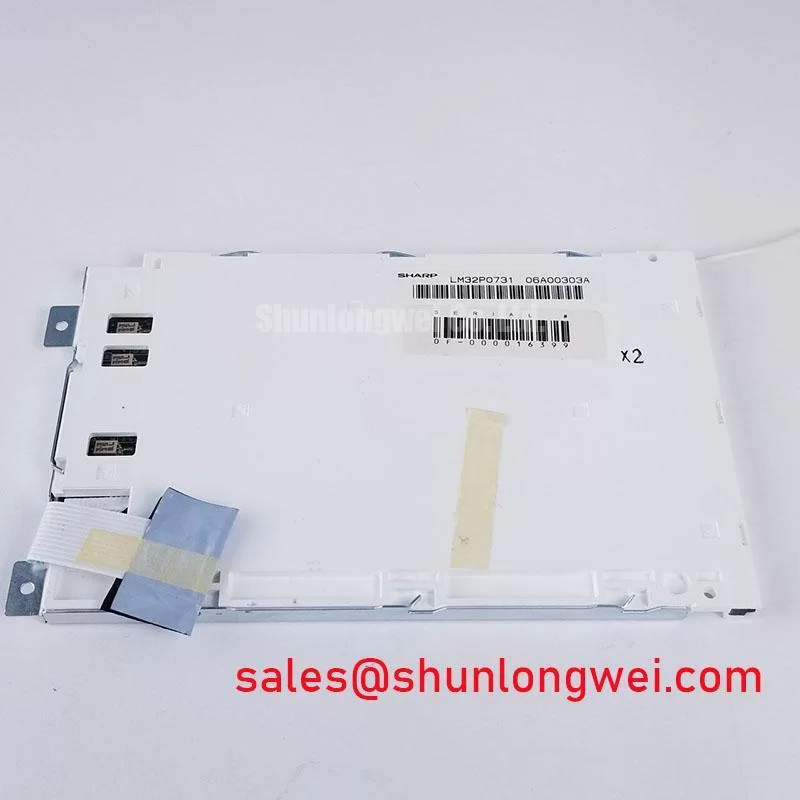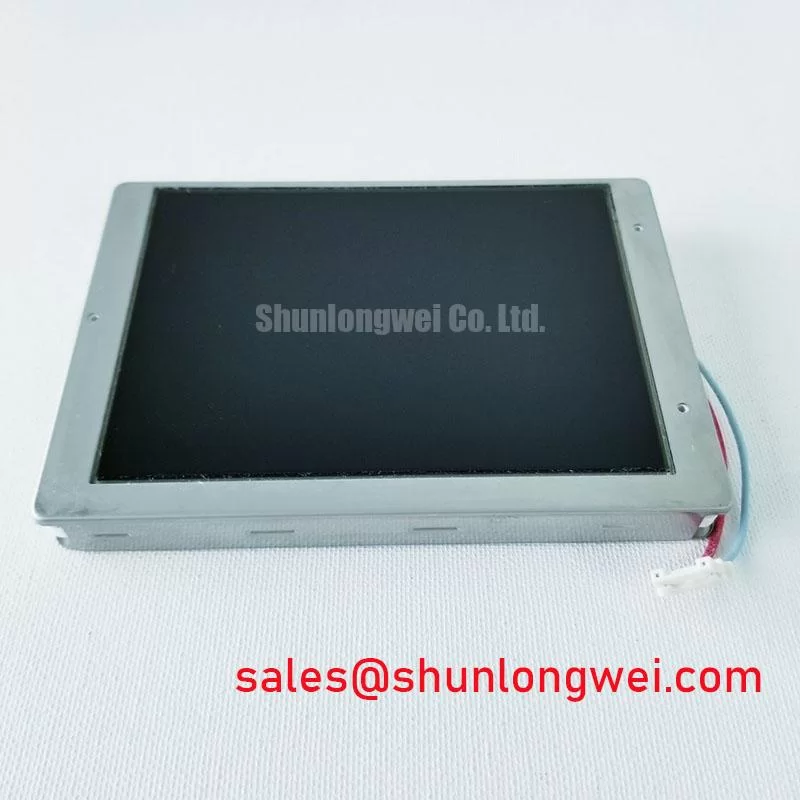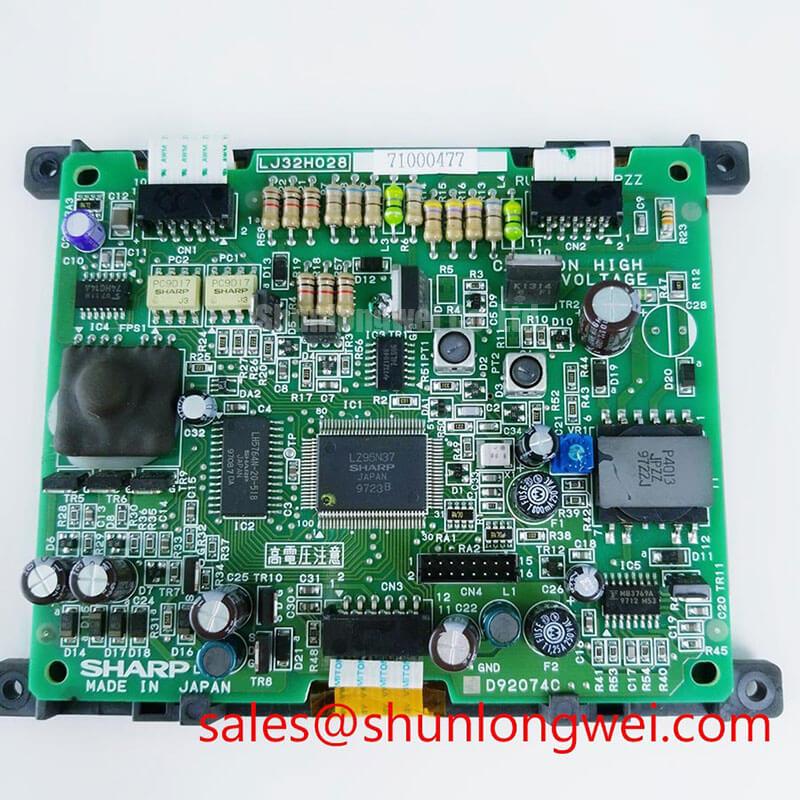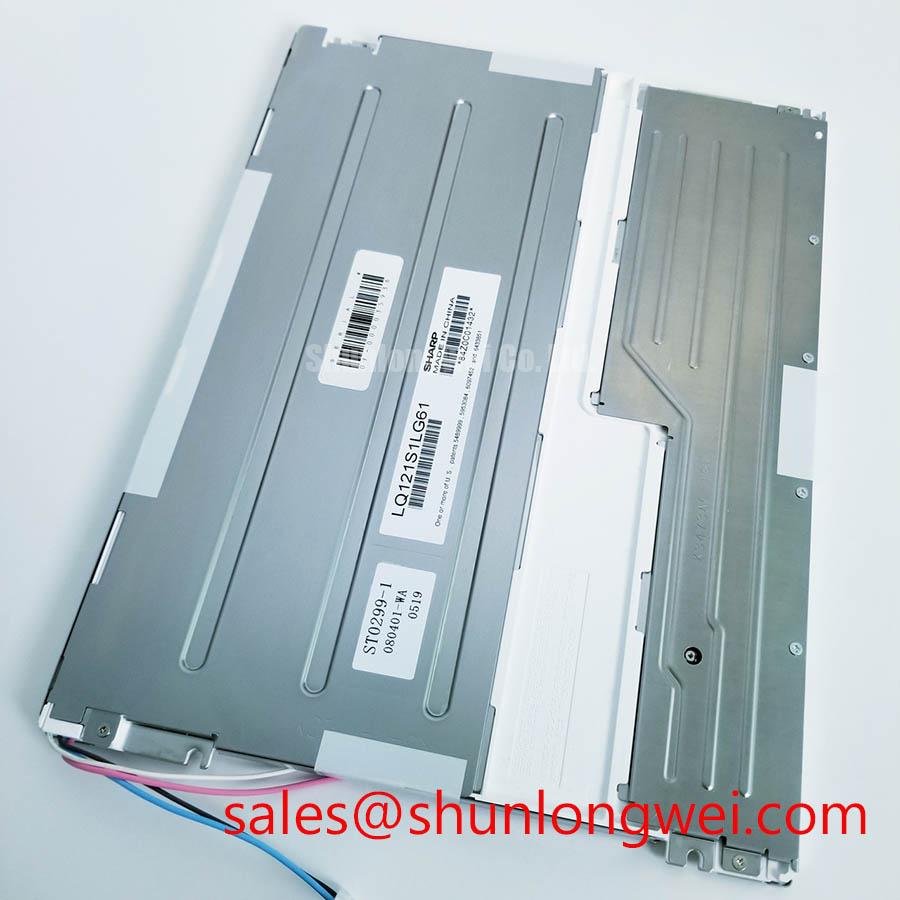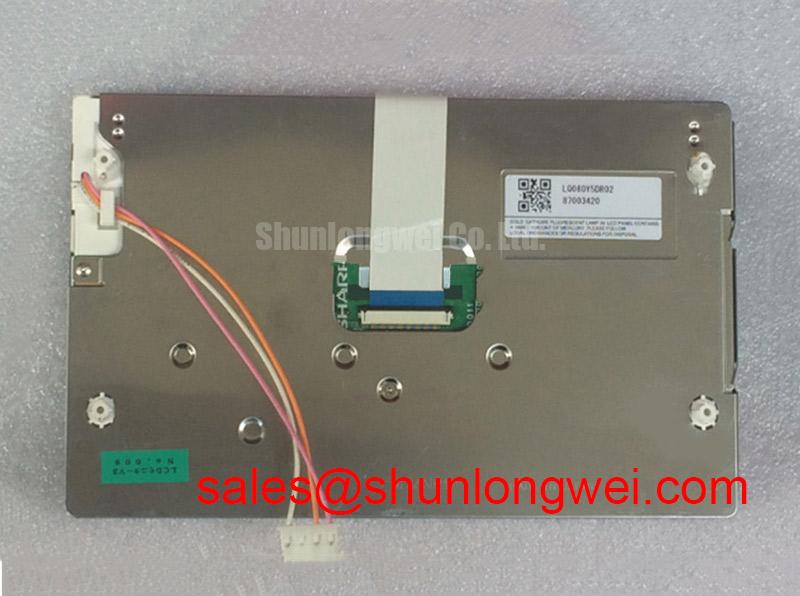Content last revised on November 15, 2025
Sharp LJ640U327 EL Display for Industrial HMIs | 640x350
Engineered for Clarity and Long-Term Industrial Service
The Sharp LJ640U327 is a robust 9.1-inch Electroluminescent (EL) display engineered for exceptional readability and long-term reliability in demanding industrial environments. It delivers mission-specific performance with key specifications of 640x350 Resolution | 40:1 Contrast Ratio | 0 to +55°C Operation. This display provides two primary engineering benefits: superior high-contrast viewing from any angle and proven environmental resilience. Its self-illuminating pixel structure delivers a crisp, high-contrast image with performance that remains stable across its entire operating temperature range, a critical advantage over many contemporary LCDs that can suffer from degraded response times in cooler conditions.
Legacy System Integration: The LJ640U327 in Action
The LJ640U327 has a proven track record as a critical component in long-lifecycle capital equipment. Its specific form factor and interface make it a frequent choice for sustaining engineering programs aimed at extending the operational life of machinery without costly and high-risk system redesigns. It is commonly deployed as a direct replacement or upgrade in:
- Legacy Computer Numerical Control (CNC) machines and factory automation controllers.
- Medical diagnostic equipment and patient monitoring systems from the 1990s and 2000s.
- Rack-mount test and measurement instruments where it replaces older CRT or early-generation LCD screens.
The value proposition in these scenarios is operational continuity. By providing a component that matches the original's performance and mechanical footprint, the LJ640U327 minimizes downtime and preserves the functionality of high-value assets.
Positioning the LJ640U327: A Focus on Specialized Readability
In the landscape of industrial displays, the Sharp LJ640U327 occupies a specialized niche defined by its Electroluminescent (EL) technology. Unlike monochrome STN-LCDs of a similar vintage, the LJ640U327 is self-emissive, meaning each pixel generates its own light. This fundamental difference yields significant performance advantages. While an STN display's legibility is highly dependent on the performance of its backlight and the ambient temperature, the LJ640U327 provides a stable, high-contrast image the moment it is powered on, with a viewing cone that approaches a full 180 degrees. This makes it a superior choice for applications where data must be read quickly and accurately from oblique angles or in fluctuating light conditions.
Defining Durability: Core Specifications of the LJ640U327
The technical specifications of the Sharp LJ640U327 are centered on delivering visual clarity and mechanical stability. For systems requiring a different feature set, the KCG057QV1DB-G000 offers a 5.7-inch CSTN option with a 320x240 resolution. The following parameters are central to the LJ640U327's design for industrial deployment.
| Parameter | Value |
|---|---|
| Display Technology | Electroluminescent (EL) Display |
| Resolution | 640 x 350 Dots |
| Typical Contrast Ratio | 40:1 |
| Operating Temperature Range | 0°C to +55°C |
| Vibration Resistance | 1.5 G (10 ~ 55 Hz) |
| Shock Resistance | 50 G (11 ms pulse) |
The contrast ratio is a particularly critical metric. Think of it as the legibility difference between crisp black ink on bright white paper versus faint pencil on a gray page. With a typical ratio of 40:1, the LJ640U327 ensures that characters and graphics are sharply defined, which helps to reduce operator eye strain and minimize the risk of misinterpretation of critical data or system alarms.
Deployments Demanding Unwavering Clarity and Resilience
The unique performance profile of the LJ640U327 makes it an excellent fit for specific industrial and specialized applications where standard displays may not suffice. Its proven resilience and visual performance support designers and maintenance engineers in critical fields.
Industrial Control and Automation
In manufacturing environments, the display serves as a dependable human-machine interface (HMI) for PLCs and process controllers. Its immunity to the electromagnetic interference common on factory floors, coupled with its shock and vibration resistance, ensures continuous operation on stamping presses, robotic assembly lines, and other heavy machinery. For systems prioritizing immediate readability over color representation, the LJ640U327's 40:1 contrast ratio makes it a more effective choice than comparable STN-LCDs.
Specialized Instrumentation
The display is well-suited for integration into portable or benchtop test and measurement equipment. In devices like spectrum analyzers or protocol testers, the fast pixel response time and high contrast are essential for accurately visualizing waveforms and rapidly changing digital signals without smearing or ghosting.
Inside the EL Technology: The Basis for High-Contrast Performance
The core of the Sharp LJ640U327's performance lies in its EL panel construction. As a solid-state, self-emissive technology, it functions without the complex liquid crystal cell and polarized layers found in LCDs. What makes EL displays inherently robust? Their solid-state, self-emissive design eliminates mechanical backlight components, a common point of failure. This foundational simplicity yields several engineering advantages:
- Intrinsic Durability: The absence of a liquid crystal layer and a separate backlight unit results in a display that is less susceptible to failure from mechanical shock and vibration.
- Wide, Consistent Viewing Angle: Since light is emitted directly from the pixel surface, the image brightness and contrast remain remarkably consistent, even when viewed from extreme angles.
- Simple System Integration: The display utilizes a 4-bit parallel data interface, which is straightforward to drive from a variety of microcontrollers and legacy graphics chipsets without requiring complex timing controllers or specialized high-speed signal management.
The Strategic Role of EL Displays in Long-Lifecycle Equipment
In an industry focused on rapid innovation, the continued availability of components like the Sharp LJ640U327 plays a crucial strategic role. It enables the practice of sustaining engineering, which focuses on maintaining and extending the life of high-value, deployed systems. For industries such as manufacturing, defense, and medicine, where equipment has a planned operational life of decades, form-fit-function replacements are not just convenient—they are an economic necessity. Investing in a component like the LJ640U327 allows organizations to maximize the return on their original capital investment, ensure operational readiness, and avoid the prohibitive costs associated with complete system requalification that a major redesign would entail. This highlights a key principle in industrial component selection, where long-term availability and proven reliability can deliver greater strategic value than initial acquisition cost.
A Continued Focus on Purpose-Built Dependability
While the display market evolves, the engineering principles embodied by the Sharp LJ640U327—clarity, durability, and long-term stability—remain fundamentally relevant. For system designers and asset managers, this display represents more than a legacy component; it is a strategic tool for ensuring that critical equipment continues to perform its function reliably and effectively. Its design underscores a philosophy where technology is precisely matched to the application's demands, ensuring that dependability and fitness-for-purpose drive the solution, safeguarding the operational and economic value of long-service-life assets well into the future.











